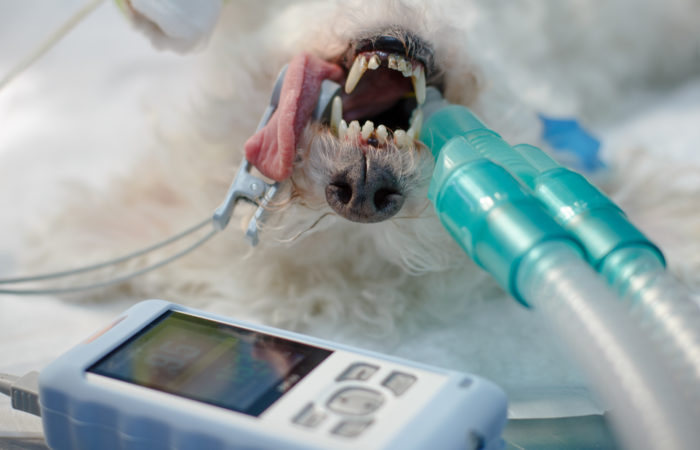Rapid response: Empowering RVNs in emergency medicine and anaesthesia
Emergency & Critical Care and the anaesthesia of critical patients is an exciting and yet often daunting challenge that RVNs face on a regular basis in practice. This course has been specifically designed to combine the stabilisation and management of many emergency conditions that present in an emergency; as well the anaesthetic considerations for being able to carry out life saving procedures on critical patients that often lead onto more in-depth anaesthetic surgical challenges. By the end of this course the delegate will be able to confidently manage the emergency patient and apply their knowledge and skills to improve patient outcome.
The course is run by Kath Howie (VTS ECC) and Janette Bailey-Woods (VTS Anaesthesia). After qualifying in 2000, Kath continued to work in primary care practice before moving to referral practice and finally emergency and critical care. Kath achieved the VTS(ECC) qualification in 2009 and has then recertified in 2014 and in 2019. Kath is a tutor for the Vets Now certificate in emergency and critical care nursing and spends a lot of time mentoring and developing RVNs both in and outside of the workplace. Veterinary nurses are key to improving outcomes in critically ill patients.
Janette qualified as an RVN in 2001 and worked in a mixed animal practice in Cumbria for 15 years. In 2013, Janette moved to work in an orthopaedic referral hospital before moving to Wear Referrals, a multi-discipline referral hospital in 2015, where she now works within the anaesthesia team as lead anaesthesia nurse. Janette has gained the NCert ECC and NCert Anaesthesia qualification, and in 2021 achieved the Veterinary Technician Specialist (VTS) in Anaesthesia and Analgesia, a prestigious credential awarded by the Academy of Veterinary Technicians in Anaesthesia and Analgesia and held by only a handful of veterinary nurses in the UK.
This course runs over a ten-week period and is the equivalent of 12 hours of CPD. It is delivered via video webinars and supplemented with a real-time discussion forum with the course tutors, giving you the opportunity to ask questions or discuss cases you may be facing in your practice.
Access to this course is for 12 months from the start of the course going live on our website. The discussion forum will be monitored for the course duration only.
Course Content
- Be able to take a systematic approach to the initial stabilisation of the GDV patient.
- Review of the evidence surrounding non-surgical management
- Stepwise approach to nursing interventions pre-op
- Pre-operative analgesia concerns
- Post-operative care including common complications and monitoring.
- Managing post-operative complications
- Be able to formulate an appropriate anaesthetic plan for the GDV patient
- Know anticipated complications and interventions during anaesthesia for the GDV patient
- Choose appropriate drug combinations
- Know what the monitors are telling you
- Be familiar with inotropes and vasopressors
- Be familiar with anticipated complications in the recovery/postoperative period
- Cardiovascular stabilisation techniques for these patients
- Focus on recognition of hypovolemia, hypoxemia and hypoproteinaemia
- Kirbys rule of 20 and how it can be utilised in critically ill patients
- Management of abdominal and thoracic drains
- Post – operative care for the septic patient
- Ongoing monitoring for the septic patient
- Be able to formulate an appropriate anaesthetic plan for the septic patient
- Know anticipated complications and interventions during anaesthesia for the septic patient
- Choose appropriate drug combinations for the septic patient
- Understand inotropes and vasopressors and how to de-escalate them
- Know what to monitor in the postoperative period
- Management of aspiration pneumonia patients
- Different methods of delivering oxygen including hi flow
- Additional nursing concerns for BOAS patients
- Arterial Blood gas analysis – what is it telling me?
- When is mechanical ventilation indicated?
- Recovery from severe hypoxia and the nurse role in monitoring and nursing care
- Understand what we are aiming to achieve with pre-oxygenation and when we should administer it
- Know how to prepare for and manage the patient with a difficult airway
- Identify which patients need specific considerations and planning for the recovery period
- Be able to identify the patient that requires immediate intervention with anaesthesia and when we should delay anaesthesia
- Identifying the patient with life threatening electrolyte disorders
- Decompressive cystocentesis pros and cons in emergency urethral obstruction patients
- Medical management of uroabdomen until surgical correction can occur
- Fluid balance in these patients including discussion of post obstruction diuresis
- Ongoing monitoring that is required in the post operative period for both urethral obstruction and uroabdomen
- Be aware of the pathophysiological changes associated with urinary obstruction and uroabdomen and how it may affect decision making
- Understand appropriate anaesthetic drug choice for the urologic compromised patient
- Be aware of anticipated complications and how to manage complications during anaesthesia
- Know what to expect and manage in the post-op period
- Understand the changes that occur during pregnancy and the different parameters that may occur as a result of this
- Neonate monitoring in the pre-operative period
- Stabilization of electrolyte abnormalities
- Reasons for dystocia to occur
- Maximising outcomes in these patients
- Understand the physiological changes occurring during pregnancy and how it influences anaesthesia
- Be able to formulate an anaesthetic plan
- Be aware of anticipated complications and how to manage complications during anaesthesia
- Know the causes of foetal hypoxia
- Understand the approach to resuscitation of the newborn, and know the importance of ventilation being prioritised over circulation
Meet the speakers

Janette Bailey-Woods
RVN, NCert (Anaesthesia & ECC), VTS (Anaesthesia & Analgesia)

Kath Howie
RVN VTS(ECC)
already purchased this course? login to your vtx account for access
login

